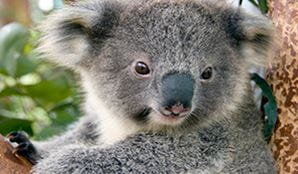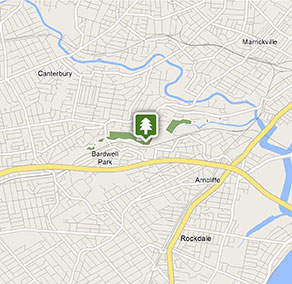Wolli Creek bush regeneration
Wolli Creek Regional Park
Overview
Volunteer with Wolli Creek Preservation Society to help protect the last area of substantial bushland in Sydney’s inner south-west.
- Work
- Bush regeneration, weed and pest management
- When
9am to 12.30pm, once a month on a Wednesday, Thursday, Friday, Saturday or Sunday. Includes a break for BYO morning tea and a catch up.
- Grade
- Medium
You’re invited to become part of this important bush regeneration work in Wolli Creek. There are a wide range of volunteering opportunities such as:
- Bird surveys
- Planting sessions
- Bush restoration
- Bat counts
- Stream watch
- Administration
- Campaigning
- Promotion
For the outdoor types, enjoy fresh air and exercise while working alongside like-minded individuals in the park’s bushland, heathland, parkland, wetland and saltmarshes.
When you volunteer with the Wolli Creek Preservation Society, you’re provided with training, guidance, information and tools. A map will be sent to you with meeting locations for bushcare, and you’ll also receive regular information on upcoming events such as talks, walks and the annual dinner. There’s great public transport access to Wolli Creek Regional Park.
Find out more about volunteering with us
Saving Our Species program
Australia is home to more than 500,000 animal and plant species, many of which are found nowhere else in the world. Saving our Species is a statewide conservation program that addresses the growing number of Australian animals and Australian native plants facing extinction.

Park info
- in Wolli Creek Regional Park in the Sydney and surrounds region
Wolli Creek Regional Park is always open but may have to close at times due to poor weather or fire danger
What's nearby:
Things to do (85)
- Aboriginal culture (10)
- Beach (1)
- Birdwatching and wildlife encounters (18)
- Cafes and kiosks (1)
- Canoeing/paddling (16)
- Cultural heritage (5)
- Cycling (2)
- Educational activities (2)
- Environmental appreciation/study (1)
- Fishing (12)
- Historic heritage (24)
- Photography (1)
- Picnics and barbecues (25)
- Sailing, boating and cruises (8)
- Sightseeing (27)
- Snorkelling and scuba (3)
- Swimming (8)
- Visitor centres (3)
- Walking (30)
- Wildflowers (seasonal) (4)




